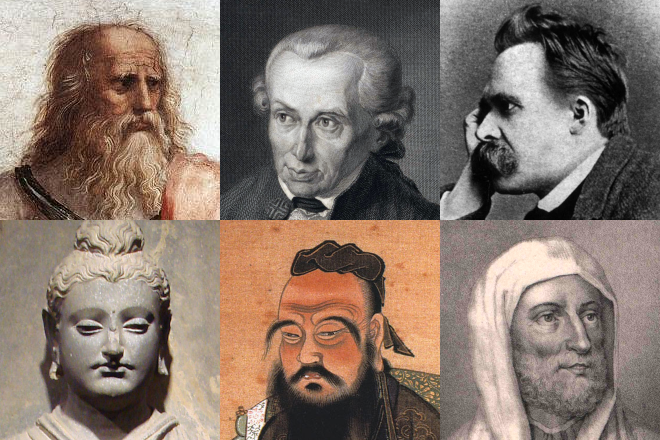Philosophy 101
- Introduction to Philosophy
- Ancient Greek Philosophy
- Renaissance and Enlightenment Philosophy
- Modern Philosophy
- American Philosophy
- Existentialism and Phenomenology
- Analytic Philosophy
- Contemporary and Postmodern Philosophy
- Eastern Philosophy
- Philosophy of Religion
- Philosophy of Science
Eastern Philosophy
Comparative Philosophy: East vs West

Scholarly tradition of humanities in the Western world.
Comparative philosophy is a branch of philosophy that compares ideas and perspectives from different cultural traditions. In this article, we will focus on the comparison between Eastern and Western philosophical traditions, exploring their key differences, similarities, interactions, and contemporary relevance.
Comparative Methodology
Comparative philosophy is not just about comparing and contrasting different philosophical systems. It involves understanding the cultural, historical, and linguistic contexts in which these philosophies were developed. It requires an open mind and a willingness to understand and appreciate different ways of thinking.
Key Differences and Similarities
Eastern and Western philosophies have developed in different cultural and historical contexts, leading to distinct philosophical traditions. Western philosophy, originating in Ancient Greece, tends to be more analytical and focuses on logic and categorization. It often seeks definitive answers and emphasizes individualism.
Eastern philosophy, including Indian and Chinese philosophies, often emphasizes harmony, balance, and holistic thinking. It tends to be more intuitive and experiential, focusing on the interconnectedness of all things and the constant flux of the universe.
Despite these differences, there are also similarities. Both traditions explore fundamental questions about existence, knowledge, values, reason, mind, and language. They both have rich ethical traditions, exploring how we should live and what constitutes a good life.
Influence and Interaction
Eastern and Western philosophies have not developed in isolation. There has been significant influence and interaction between them throughout history. For example, during the Hellenistic period, Greek and Indian philosophers interacted, leading to the development of Greco-Buddhism. In the modern era, Western interest in Eastern philosophies has grown, leading to the incorporation of concepts like mindfulness and meditation into Western thought.
Contemporary Relevance
In today's globalized world, the importance of understanding different philosophical traditions is more relevant than ever. Eastern philosophies, with their emphasis on harmony, balance, and interconnectedness, can offer valuable insights into dealing with contemporary issues like environmental sustainability and social cohesion. Similarly, the Western tradition's emphasis on critical thinking and individual rights can contribute to discussions on democracy and human rights.
In conclusion, comparative philosophy offers a valuable approach to understanding and appreciating the richness and diversity of human thought. By exploring both Eastern and Western philosophies, we can gain a more comprehensive understanding of the world and our place in it.